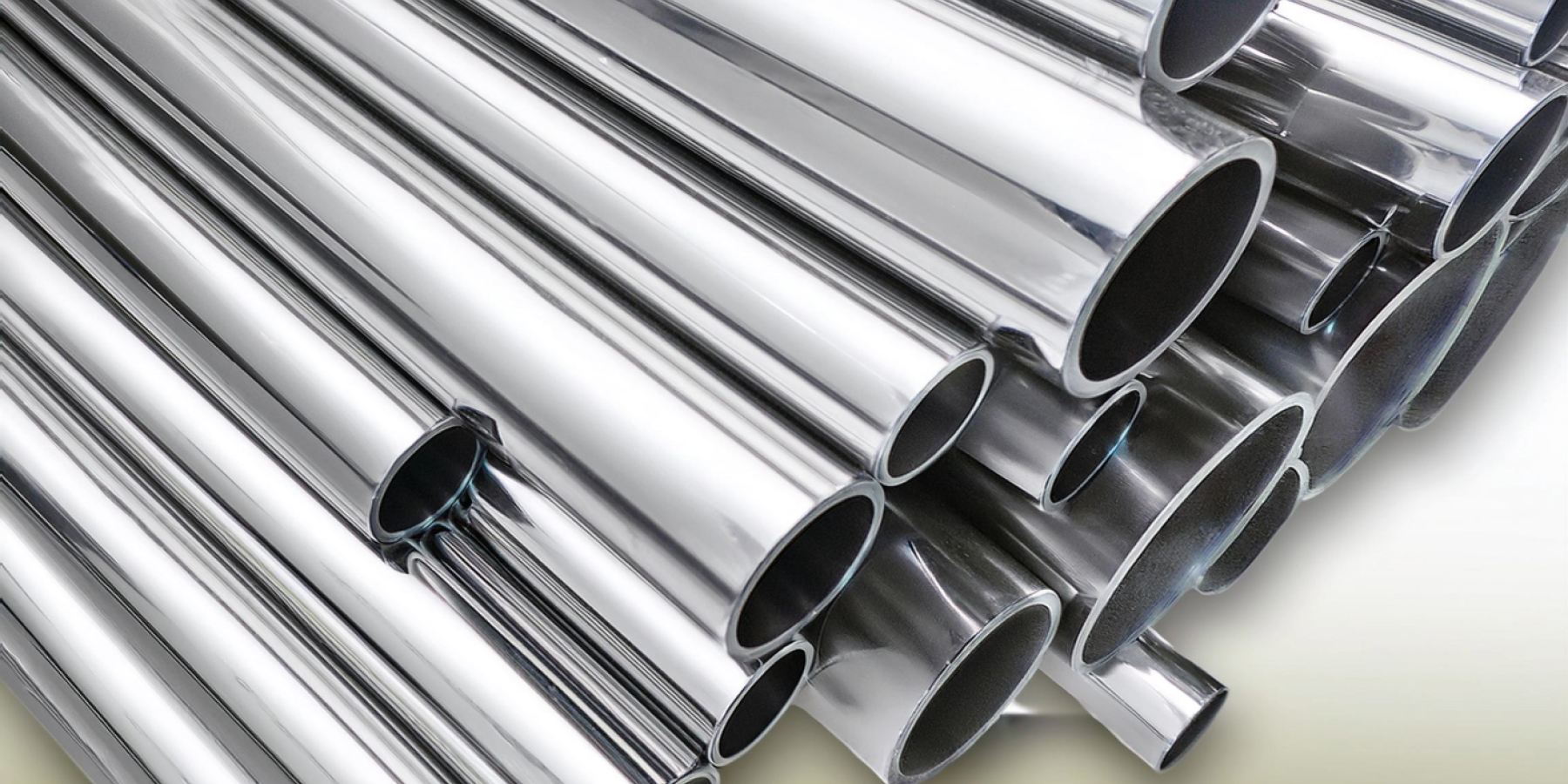Alloy Steel Plates

Alloy steel plates are an essential component in many industrial applications, and Om Steel is a leading manufacturer and supplier of high-quality alloy steel plates. Our plates are designed to meet the diverse needs of various industries and come in a wide range of grades to ensure that you get the right product for your specific application.
One of the key features of our alloy steel plates is their excellent strength and durability. They can withstand high temperatures and pressure, making them suitable for use in harsh and demanding environments. Our alloy steel plates are also highly resistant to corrosion and wear and tear, ensuring long-lasting performance.
We offer a variety of alloy steel plate types, including low alloy, high strength, and corrosion-resistant alloys, all of which are suitable for use in a wide range of applications. Our plates are easily fabricated, making them ideal for use in various manufacturing processes.
At Om Steel, we use the latest technology and manufacturing techniques to ensure that our products meet the highest quality standards. Our team of experts is always available to answer any questions you may have and to provide you with the necessary guidance and support to ensure that you get the best possible product.
Properties and Characteristics of Alloy Steel Plates
Properties of Alloy steel plates
Mechanical Properties
High Ductility
Corrosion Resistance
Characteristics of Alloy steel plates
Specifications
Quality
Features
Types and Grades of Alloy Steel Plates
Low Alloy Steel Plates
Medium Alloy Steel Plates
High Alloy Steel Plates
Nickel Alloy Steel Plates
Chromium-Molybdenum Alloy Steel Plates
Chrome-Molybdenum-Vanadium Alloy Steel Plates
Chrome-molybdenum-vanadium (CMV) alloys offer excellent strength and toughness properties making them ideal for use in high-stress applications such as structural components or heavy machinery. CMV alloys also have good corrosion resistance properties making them suitable for use in marine environments.
Continue Reading on Similar Topics:
Alloy Steel Plate Specifications
| Specifications | ASTM A387 / ASME SA387 |
|---|---|
| Thickness | 1mm-300mm |
| Width | 1000mm, 1219mm, 1500mm, 1800mm, 2000mm, 2500mm, 3000mm, 3500mm, 4050mm etc |
| Length | 2000mm, 2440mm, 3000mm, 5800mm, 6000mm, 12000mm, 15000mm etc |
| Surface | 2B, 2D, BA, NO.1, NO.4, NO.8, 8K, mirror, checkered, embossed, hair line, sand blast, Brush, etching Manufacturer and Supplier |
| Finish | Hot rolled plate (HR), Cold rolled sheet (CR) |
Alloy steel Plate ASTM grades
| Grades | C | Mn | P | S | SI | Cr | Mo |
|---|---|---|---|---|---|---|---|
| ASTM A387 Grade 5 | 0.15 max | 0.3 – 0.6 | 0.035 | 0.03 | 0.5 max | 4.00 – 6.00 | 0.45 – 0.65 |
| ASTM A387 Grade9 | 0.15 max | 0.30 – 0.6 | 0.03 | 0.03 | 1.0 max | 8.0 – 10.0 | 0.9 – 1.1 |
| ASTM A387 Grade 11 | 0.05 – 0.17 | 0.4 – 0.65 | 0.035 | 0.035 | 0.5 – 0.80 | 1.0 – 1.5 | 0.45 – 0.65 |
| ASTM A387 Grade 12 | 0.05 – 0.17 | 0.4 – 0.65 | 0.035 | 0.035 | 0.15 – 0.4 | 0.8 – 1.15 | 0.45 – 0.6 |
| ASTM A387 Grade 22 | 0.05 – 0.15 | 0.3 – 0.6 | 0.035 | 0.035 | 0.5 max | 2.0 – 2.5 | 0.9 – 1.1 |
Alloy Steel Plate Imperial Dimensions
| Plate Surface finish | Gauge (in) | Width (max in) |
|---|---|---|
| 2B – Cold rolled, heat treated, pickled, skin passed Plate | 10–24 | 72* |
| 2D – Cold rolled, heat treated, pickled plate | 12–24 | 60 |
| BA Mexinox only | 18–28 | 48 |
| Polished plate (not brushed) | 11–24 | 60 |
| Temper rolled plate Mexinox only | 13–29 | 48 |
Alloy Steel Plates Thickness
| Dimension thickness | ||
|---|---|---|
| 0.025" | 4" | 0.75" |
| 0.032" | 3.5" | 0.875" |
| 0.036" | 0.109" | 1" |
| 0.04" | 0.125" | 1.125" |
| 0.05" | 0.16" | 1.25" |
| 0.063" | 0.19" | 1.5" |
| 0.071" | 0.25" | 1.75" |
| 0.08" | 0.3125" | 2" |
| 0.09" | 0.375" | 2.5" |
| 0.095" | 0.5" | 3" |
| 0.1" | 0.625" | - |
Alloy Steel Plate Sizes
| Size (in inches) | Size (in mm) |
|---|---|
| .125" | 3.18mm |
| .134" | 3.40mm |
| .156" | 3.96mm |
| .187" | 4.75mm |
| .250" | 6.35mm |
| .312" | 7.92mm |
| .375" | 9.53mm |
| .500" | 12.7mm |
| .600" | 15.9mm |
| .750" | 19.1mm |
| .875" | 22.2mm |
| 1" | 25.4mm |
| 1.125" | 28.6mm |
| 1.250" | 31.8mm |
| 1.500" | 38.1mm |
| 1.750" | 44.5mm |
| 2" | 50.8mm |
| 2.500" | 63.5mm |
| 3" | 76.2mm |
Alloy Steel Plates Weight
| Thickness | Plate Weight per Unit Area | Density |
|---|---|---|
| 3/16 inches | 0.06000 lbs/in²42.184176 kg/m² | 0.315 lbs/in³8.72 g/cm³ |
| 1/4 inches | 0.08 lbs/in²56.245568 kg/m² | 0.315 lbs/in³8.72 g/cm³ |
| 3/8 inches | 0.121 lbs/in²85.0714216 kg/m² | 0.315 lbs/in³8.72 g/cm³ |
| 1/2 inches | 0.161 lbs/in²113.1942056 kg/m² | 0.315 lbs/in³8.72 g/cm³ |
| 5/8 inches | 0.196 lbs/in²137.8016416 kg/m² | 0.315 lbs/in³8.72 g/cm³ |
| 3/4 inches | 0.235 lbs/in²165.221356 kg/m² | 0.315 lbs/in³8.72 g/cm³ |
| 7/8 inches | 0.274 lbs/in²192.6410704 kg/m² | 0.315 lbs/in³8.72 g/cm³ |
| 1 inches | 0.313 lbs/in²220.0607848 kg/m² | 0.315 lbs/in³8.72 g/cm³ |
| 1 1/4 inches | 0.391 lbs/in²274.9002136 kg/m² | 0.315 lbs/in³8.72 g/cm³ |
| 1 1/2 inches | 0.47 lbs/in²330.442712 kg/m² | 0.315 lbs/in³8.72 g/cm³ |
| 1 3/4 inches | 0.549 lbs/in²385.9852104 kg/m² | 0.315 lbs/in³8.72 g/cm³ |
| 2 inches | 0.627 lbs/in²440.8246392 kg/m² | 0.315 lbs/in³8.72 g/cm³ |
| 2 1/4 inches | 0.705 lbs/in²495.664068 kg/m² | 0.315 lbs/in³8.72 g/cm³ |
| 2 1/2 inches | 0.784 lbs/in²551.2065664 kg/m² | 0.315 lbs/in³8.72 g/cm³ |
| 2 3/4 inches | 0.862 lbs/in²606.0459952 kg/m² | 0.315 lbs/in³8.72 g/cm³ |
| 3 inches | 0.941 lbs/in²661.5884936 kg/m² | 0.315 lbs/in³8.72 g/cm³ |
Industrial Application of Alloy Steel Plates
Defence & Aerospace
Defence & Aerospace
Oil/Gas
Oil/Gas
Speciality Valves & Vacuum
Speciality Valves & Vacuum
Precision Components
Precision Components
Request A Quote
FAQ
Alloy steel plates are typically produced through a process called hot rolling, where a billet of steel is heated above its recrystallization temperature and then passed through a series of rollers to reduce its thickness. Cold rolling may also be used to achieve a finer finish or tighter tolerances. After rolling, the plates are typically annealed to improve their ductility and toughness.
There are many different grades of alloy steel plates available, each with its own unique combination of properties. Some of the most popular grades include 4140, 4340, 6150, 8620, and 52100. The selection of a particular grade depends on the specific application requirements.
Alloy steel plates offer several advantages over other types of steel. They are stronger, more durable, and more resistant to wear and corrosion. They can also withstand high temperatures and pressures, making them ideal for use in harsh environments. Additionally, the alloying elements in the steel can provide specific properties such as improved hardenability, machinability, or weldability.
When selecting alloy steel plates, it’s important to consider factors such as the required strength, hardness, and toughness, as well as the application temperature and environment. Other factors to consider include the desired surface finish, machining and welding properties, and cost. It’s also important to work with a reputable supplier who can provide quality materials and technical support.




